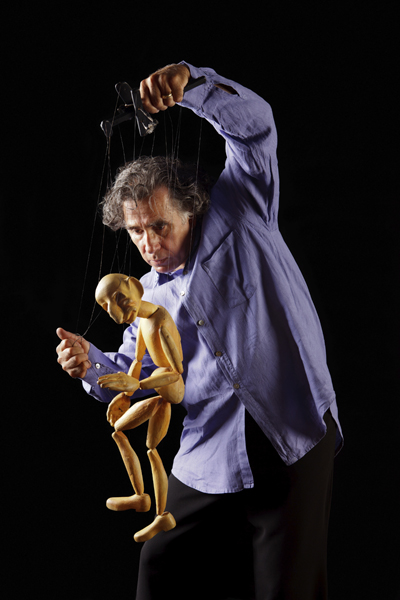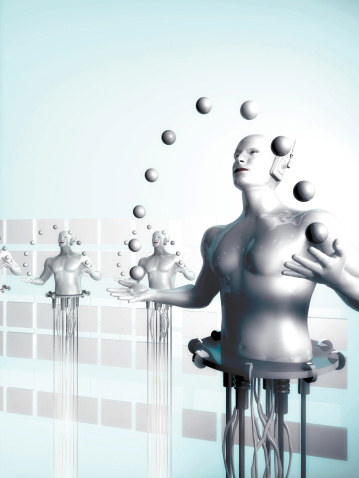
|
Scrolling through Facebook—and occasionally dipping into the clickbait topics associated with it, particularly those before-and-after comparisons of the actors and actresses of my youth—I had a sudden inspiration: our world is measurably different since the invention and widespread distribution of the personal means of photography.
Taking photographs, especially in the early days, used to be a learned skill. To practice photography successfully, you needed a good camera, some understanding of film speeds, f-stops, aperture settings, and light conditions. And if you weren’t going to go broke getting your negatives and prints developed at the drug store, you had to build a darkroom, invest in an enlarger, buy a stock of specially treated paper, and become something of an amateur chemist. I know all this because my grandfather was a dedicated photographer, and he gave the bug to my brother, who sealed off one room in every house we owned and infested it with the vinegar-and-rotten-egg smell of developer and fixer. Since then, he’s invested a goodly portion of his disposable income in better and better cameras and a variety of lenses to fit them.
Everyone else, these days, uses an application that comes free with their smartphone and is built around a lens no bigger than a grain of sand and a photo chip to match. People routinely, or so the meme goes, photograph their lunches and send them to friends on social media. And along the way, they capture every stage of their children’s development, of their home renovation, their latest road trip, and whatever they can see out the window of a bus. Those with access to an old family album—or someone like my brother—will also post pictures from decades ago when their grandparents were young and hot and in love.
Think of what our future will be! One day soon, you won’t have to dig out a dusty old album or box of prints from the attic and hunt through them to make those comparisons. Instead, you will have your entire family and the highlights of your life catalogued year by year, sometimes day by day, to pull up, enjoy, and relive.
But now I imagine a time before even the dedicated family photographer or the studio professional, capturing those key moments like Christmas mornings, weddings, and birthdays for us to keep in our hearts forever. That time goes back to … when? Certainly before the 20th century. You can pick 1888, when George Eastman developed and marketed the first simple box camera using celluloid film under the brand name Kodak. Or the Civil War years, when Matthew Brady visited battlefields and encampments with his view camera that recorded on glass plates, which themselves required a whole wagonload of equipment to store and develop. Or back to the 1830s, when Louis Daguerre experimented with exposing copper plates that had been treated with a vapor of silver iodide to make them light sensitive, eventually producing the first “photograph”—or, from two Greek words, “light writing.”
Before that, if you wanted to capture the image of someone or something, you hired a person with skills in drawing, color mixing, and painting. That meant you put up with that person’s peculiarities of vision and perception, distortions from their own imagination and personal biases, the speed at which they were willing to work, and their other competing clients and interests. You could hardly capture an event or a moment at your discretion unless it was hurriedly sketched or carefully staged before the final application of paint to canvas for the full-color effect.
That is, if you wanted to document the people or events in your life, you were either royalty or immensely wealthy. For the rest of us, events happened and then disappeared forever, captured only in memory and imagination, or perhaps with a description in our own or someone else’s diary. People aged before our eyes, and we had only our memories of their faces to compare with the day-to-day reality in front of us. We couldn’t laugh or marvel at the clothing styles that our grandparents had thought fashionable unless they laid the actual articles in a trunk for us to discover and try on decades later.
For most of us, the world lived in a perpetual now. Our sense of history came from our parents’ memories and what we could read in books—accepting, once again, the distortions of the author’s imagination and biases. Things happened, and then they became part of an ever-fading yesterday that lost relevance even as you thought about it. People lived, grew up, flourished, grew old, and died, but all you ever knew about them was the person who happened to be standing in front of you in the current moment. It was a world with a lot less to think about and compare. It was a world with a fragile human memory, some dusty books, a few mementoes in trunks, and a gallery of paintings about other people.
Do we live in a better world now? Today we can access high-resolution pictures of the lunch we had three years ago. We can relive every birthday and Christmas morning even after most of the participants are dead. We can—now that our smartphone records not only still pictures but also full minutes of action with video—live in the event. We can do everything but speak to the dead and change, for better or worse, the moments we are watching.
Is that better? Or are we forced out of the now and into the remembered channels of fond feelings, lost hopes, and sometimes bitter regrets? I don’t know. I would ask my brother, but right now he’s too busy capturing and processing the moments themselves.


